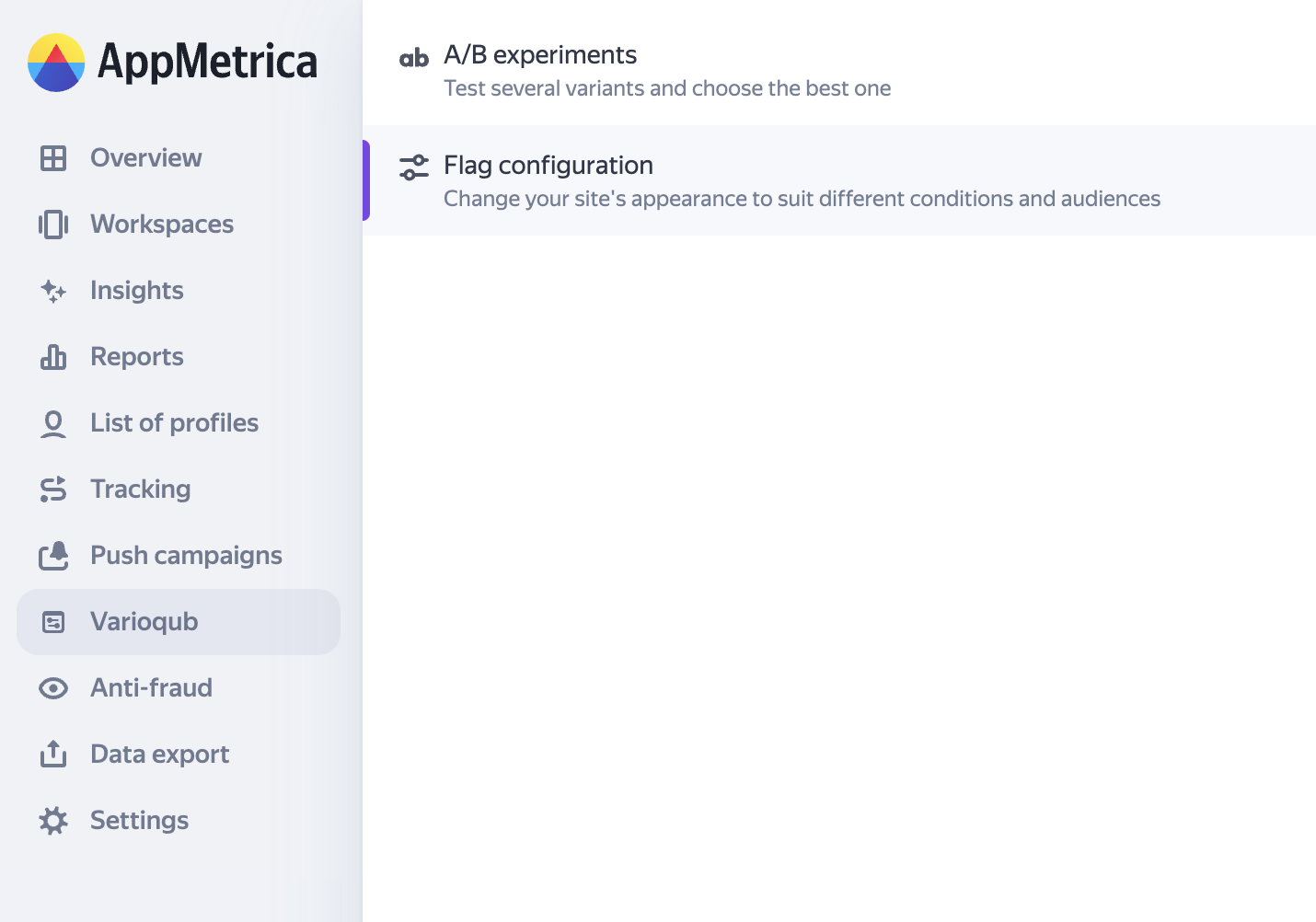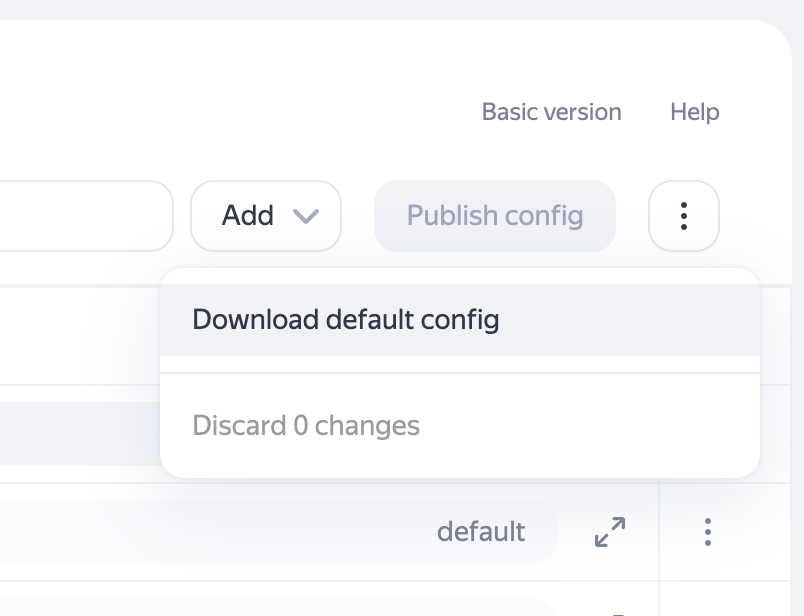varioqub_configs_generator 0.1.1  varioqub_configs_generator: ^0.1.1 copied to clipboard
varioqub_configs_generator: ^0.1.1 copied to clipboard
Command-line tool to generate Varioqub configurations from a default values file
Varioqub Configs Generator #

Helper package for varioqub_configs to generate code based on your defaults.xml #
Example of using #
1. Go to your AppMetrica project website and download the default values of your configurations #


Use the following buttons to download the configuration file. Move it to your project folder.
2. Add this package and varioqub_configs to your project dependencies #
dependencies:
varioqub_configs: ^0.8.1
dev_dependencies:
varioqub_configs_generator: ^0.1.1
3. Use the command to generate the configuration code based on your default values #
dart run varioqub_configs_generator --config="path/to/config.xml" --output "lib/src/configs.g.dart"
Example of generated code #
For the following configuration the following file will be generated:
<?xml version="1.0" ?>
<defaults client_id="example" config_id="12" config_version="17">
<entry>
<key>string-key</key>
<value>value</value>
</entry>
<entry>
<key>number-key</key>
<value>123</value>
</entry>
</defaults>
// Autogenerated from varioqub_configs_generator (v0.1.1), do not edit directly.
// See also: https://pub.dev/packages/varioqub_configs_generator
import 'package:varioqub_configs/varioqub_configs.dart';
abstract final class VarioqubConfigs {
static const String $clientId = 'example';
static const int $configId = 12;
static const int $configVersion = 17;
static const Map<String, Object> $defaultValues = {
'string-key': 'value',
'number-key': 123,
};
static Future<String> get stringKey async =>
Varioqub.getString(key: 'string-key', defaultValue: 'value');
static Future<int> get numberKey async =>
Varioqub.getInt(key: 'number-key', defaultValue: 123);
}
4. Use generated with variogub_configs #
await Varioqub.build(
const VarioqubSettings(
clientId: VarioqubConfigs.$clientId,
activateEvent: true,
logs: true,
trackingWithAppMetrica: true,
fetchThrottleInterval: Duration(hours: 12),
),
);
await Varioqub.setDefaults(VarioqubConfigs.$defaultValues);
await VarioqubConfigs.stringKey; // value
await Varioqub.fetchConfig();
await Varioqub.activateConfig();
await VarioqubConfigs.stringKey; // your-remote-value
Sources #
What is Varioqub? (The main website of the Varioqub project)
Changelog #
Refer to the Changelog to get all release notes.
Maintainers #
This library is open for issues and pull requests. If you have ideas for improvements or bugs, the repository is open to contributions!